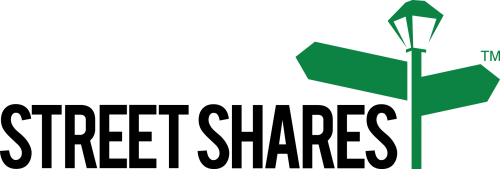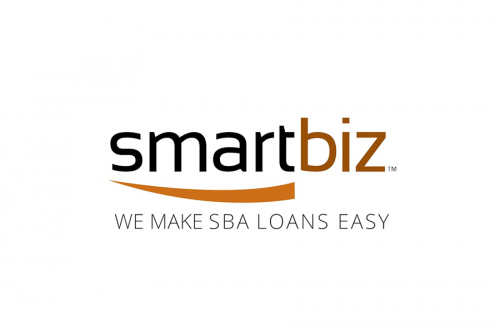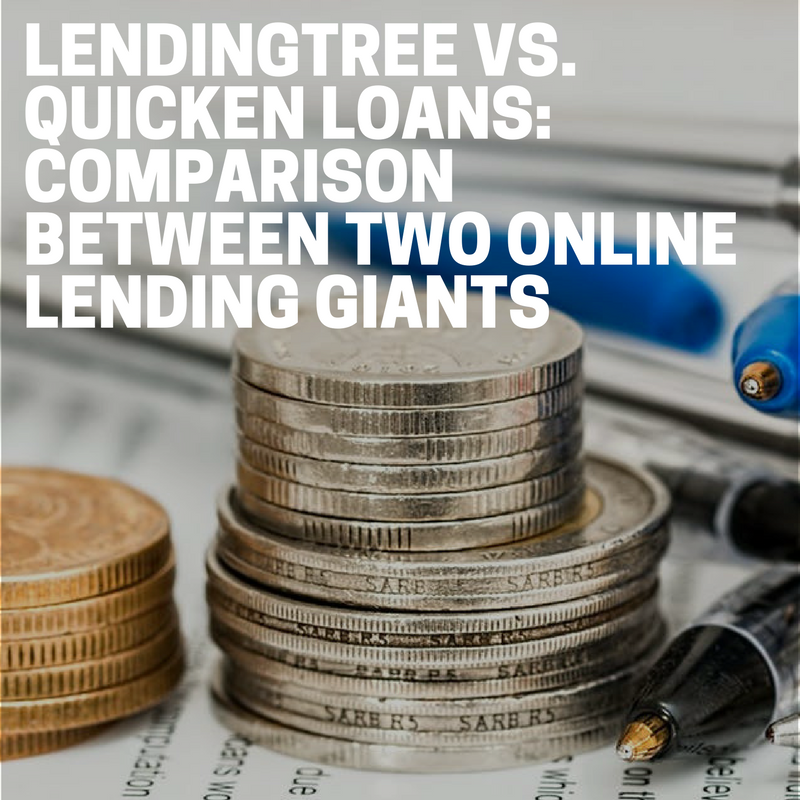
The time-consuming processes of traditional banks have surprisingly paved the way for an industry that has tremendously developed in less than a decade. The industry of peer-to-peer lending has since become a viable alternative to some standard bank loans and is rising as a competitor to the traditional banking system.
The peer-to-peer lending marketplace is popularly known as the P2P lending marketplace. It works via a simple online platform, which connects lenders and borrowers, thereby cutting out the protocols of traditional banking. The P2P platforms do not lend funds of their own. Nevertheless, they act as facilitators to both the loan-giver and the loan-seeker.
The P2P lending system has given much ease to the practice of loaning and borrowing money. With just a click of your mouse, you can now easily avail loans online without the need of going to the banks in person or waiting for approvals. Simplified applications, accelerated decisions, and low-interest rates have since made this peer-to-peer model a massive success in the modern world. Having presented borrowers with an improved financial landscape, these institutions are gaining a foothold and gathering momentum.

According to a report by PriceWaterhouseCoopers, “although still in its infancy as a market, US P2P platforms issued approximately $5.5 billion in loans in 2014.” The PwC says that the market could reach $150 billion or even higher by 2025.
Lending Club
Lending Club is considered to be one of the most popular marketplace lenders that are available. It was first established back in 2006, and the company was one of the first non-bank, non-payday lenders that were introduced to the market. Since then, they have become one of the faces of P2P and fintech industry.

Although popularity should not be mistaken for quality, Lending Club can be considered to have good services for various business owners. Lending Club has a lot of options that have reasonable terms and fees for merchants that are in need of financing that includes lines of credit for businesses that have cash flow problems, term loans for businesses that are looking for an infusion of working capital, and even personal loans that can be used for startup businesses.
Terms & Fees
- Term Amounts – Normally ranges between $1,000 to $400,000.
- Term Lengths – Usually between three (3) to five (5) years.
- APRs – Typically between 5.99 percent (5.99%) to 35.89 percent (35.89%) based on your credit score.
There are also a lot of reasons why the Lending Club might not be the service you should opt for. Perhaps, you are not eligible to avail of their loans and services, or your application may have already been rejected for some reason, or maybe the recent controversies that are surrounding the firm may have left you worried and shaken. Whatever your reason is, it is best to know that there are still some alternatives to Lending Club.
Here are some of the Best Lending Club Alternatives that can be suitable for you:
1. Fundation
The borrower qualifications of Fundation is similar to those of Lending Club's term loans. Based on our experience, the customer service of Fundation is very exceptional. Just like Lending club, it offers estimated quotes right after a quick and easy online application.

The company was established in 2011 and has become one of the top funders in the alternative lending space. The terms and fees of Fundation are just about the best that you can get outside of a bank or credit union. The time from application to funding is shorter compared to the banks by weeks (if not months). On top of that, the advertising of Fundation is transparent, and their customer service is fantastic. At the time of writing, there are virtually no negative comments or reviews of the company that can be seen on the web.
Terms & Fees
- Term Amounts – Normally ranges between $20,000 to $500,000.
- Term Lengths – Usually between one (1) to four (4) years.
- APRs – Typically between eight percent (8%) to thirteen percent (13%).
Qualifications
- The borrower must have a minimum of two (2) years of business experience
- The borrower must have a minimum credit score of 600
- The borrower must have an annual revenue amounting to at least $100,000
- The borrower must have at least three (3) employees, including himself/herself
Pros:
- Competitive terms and fees
- Few additional fees
- Average time to funding: 2 – 7 days
- No prepayment penalty
- Outstanding customer support
Cons:
- Stringent borrower qualifications
- Slightly lengthy application process
- Not suited for startups
2. StreetShares
StreetShares, a P2P lender, offers lenient loan structures and low interest rates. They are also much easier to qualify for compared to Lending Club. All you need is to have one year of experience in business and an annual revenue of at least $25,000. Once you have already made $100,000, you can avail a loan at the six-month mark.

Streetshares was established by veterans, for veterans. Nonetheless, you are not required to be a veteran to use this service, but is considered as an excellent resource for those who are.
Terms & Fees
- Term Amounts – Normally up to a maximum of $100,000
- Term Lengths – Usually between three (3) to thirty-six (36) months.
- APRs – Typically between seven percent (7%) to forty percent (40%).
Qualifications
- The borrower must have at least one (1) year of business experience
- The borrower must have a minimum credit score of 600
- The borrower must have an annual revenue amounting to at least $25,000
Pros:
- Relaxed borrower qualifications
- Competitive terms and fees
- Easy application process
- Average time to funding: 2 – 7 days
- No prepayment penalties
- Outstanding customer service
Cons:
- Not suited for large businesses
3. SmartBiz
If you have a business that has a solid cash flow and is at least two years old, and you have outstanding personal and business credit, you can already qualify for an SBA (Small Business Administration) loan. The long and complicated application process for an SBA is normally a pretty large deterrent. SmartBiz, on the other hand, has been able to significantly streamline and speed up the process.

Terms & Fees
- Term Amounts – Normally ranges between $30,000 to $350,000.
- Term Lengths – Usually ten (10) years
- APRs – Typically between 7.21 percent (7.21%) to 8.44 percent (8.44%).
Qualifications
- The borrower must have at a minimum of (2) years of business experience
- The borrower must have good personal credit
- The borrower must have a strong and health cash flow
4. OnDeck
OnDeck is considered as a large prolific online lender. It was established in 2007 and has since become one of the first lenders to primarily be dependent on technology in determining their lending decisions. Using their algorithms, decisions that usually took days or weeks can now only take minutes.

Terms & Fees
- Term Amounts – Normally ranges between $15,000 to $100,000.
- Term Lengths – Usually have six (6) months of draw term lengths
- APRs – Typically between fourteen percent (14%) to forty percent (40%).
Qualifications
- The borrower must have at least nine (9) months of business experience
- The borrower must have a minimum credit score of 600
- The borrower must have an annual revenue amounting to at least $75,000
Pros:
- Relaxed borrower qualifications
- Relaxed credit score requirements
- Competitive terms and fees
- Short application process
- Outstanding customer support
- Prepayment discounts
Cons:
- Potentially high factor rates
- Opaque advertising
5. Upstart
If you are just starting out on your business, and you cannot yet avail financing for your as yet non-existent business, a loan from a personal lender can be utilized to start a business. The target market of this P2P lender – Upstart – are younger people who are usually yet to establish great credit histories.

Terms & Fees
- Term Amounts – Normally range between $3,000 to $50,000.
- Term Lengths – Usually between three (3) to five (5) years.
- APRs – Typically between 4.5percent (4.4%) to thirty percent (30%).
Qualifications
- Must be at least 18 years old with a social security number.
- The borrower must have a regular source of income
- The borrower must have a bank account
- The borrower must have a credit score of at least 640
Pros:
- Suitable for startups
- Relaxed credit score requirements
- Competitive terms and fees
- Easy application process
- Average time to funding: 2 – 7 days
- No prepayment penalty
Cons:
- Not suitable for established businesses
- Potentially high origination fee
6. Kiva Zip
Kiva Zip is suitable for those who need startup capital, but would not want to mix personal and business finances.

Terms & Fees
- Term Amounts – Ranges between $25 to $10,000.
- Term Lengths – Usually between six (6) to thirty-six (36) month.
- APRs – Zero percent (0%)
Qualifications
- The borrower must be a resident of the United States of America
- The borrower must be over 18 years old
- The borrower must have a viable business plan.
Pros:
- Suitable for startups
- No credit score requirements
- No interest rates
- No additional fees
- No prepayment penalty
- Excellent customer support
Cons:
- Not suitable for large businesses
- Lengthy application process
- Average time to funding: 1 – 3 months
7. Prosper
Prosper Marketplace, Inc is the first ever peer-to-peer lending market place that was established in the United States. The platform has tremendously developed since its foundation.

It currently boasts a member base that consists of around 250,000 people who has already funded more than $4 billion in loans. Prosper offers its investors a wide variety of loans that range from debt consolidation to home improvement, auto and vehicle loans, short-term and bridge loans, baby and adoption loans, small business loans, special occasion loans, engagement ring financing, green loans and even military loans.
Terms & Fees
- Term Amounts – Ranges between $2,000 to $350,000.
- Term Lengths – Usually between three (3) to five (5) years.
- APRs – Typically between 5.99 percent (5.99%) to thirty-six percent (36%).
Pros:
- Offers loans for a variety of purposes.
- Low starting APRs.
- Simple terms of 3 year(s) or 5 year(s).
Cons:
- Maximum loan of only $35,000.
- Offers only 2 fixed term lengths.
8. SoFi
SoFi was established in 2011 and has already become a popular name in the peer-to-peer lending marketplace. SoFi focuses “to help early-stage professionals accelerate their success with student loan refinancing, mortgages, mortgage refinancing and personal loans.”

SoFi has already issued more than $4 billion in loans. It has a somewhat strict criteria for eligibility as they look into prospective or current employability, budget management (income versus expenses), financial history, graduation school accreditation, and job experience of the client among other things.
Aside from MBA loans, they offer mortgages, mortgage refinancing, student loan refinancing, parent loans, parent plus refinancing, and personal loans.
The term amounts of SoFi normally range between $5,000 to $100,000.
Pros:
- Large maximum loan amount of $100,000.
- Available in 48 states and the District of Columbia
- Free credit counselling and unemployment protection
- No origination, closing or prepayment fees
Cons:
- Strict requirements for eligibility
- Lower approval rate compared to other lenders
Lending Club may have been one of the most sought-after financing options for many years. However, if Lending Club fails to satisfy your needs for some reason, there are many options available for you to choose from.
We can say that opening up or improving your business is now made easier with the help of the P2P marketplace. Not only will you be able to borrow money that can be used for your business, but you will also be spared from the long queues and waiting times that you can experience if you opt to personally go to banks to avail of their loans.
The P2P marketplace also allows you to take advantage of their offers for your other financing needs such as personal loans. You must learn how to compare the services of these various lenders in order to be able to discover which one of them is best suited for you. It also helps that you know which one offer the best and lowest rates.



